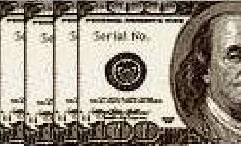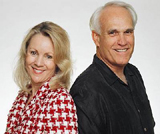






3853 Atlantic Ave.
|
Click here |
by Jon Coupal, President, Howard Jarvis Taxpayers Ass'n LBReport.com Introduction: In spring 1978, then-LB Mayor Tom Clark and others likeminded urged voters to defeat Proposition 13 and approve an "alternative" (in our opinion, lesser) measure. Instead, empowered by Howard Jarvis, CA voters approved Proposition 13's property tax limitations in a landslide. In September 2004, LB City Hall's official 2004-05 budget indicated that apart from interfund charges and transfers, property taxes are today the single largest revenue source for LB City Hall's General Fund (approx. 17.3% or $61.5 million). Although some at City Hall try to blame their overspending (and red ink from fattened pensions) on Norm Ryan's Prop J utility tax cut, the truth is LB's utility tax is still second to property tax in City Hall revenue (est. $40.5 million). LB's sales tax runs behind property tax and utility tax (est. $32.3 million). And for the record, LB's highly touted hotel room tax (transient occupancy tax), for which some geniuses are prepared to risk LB property values in airport-impacted areas, is expected to generate only roughly $14 million...of which the General Fund currently only gets half (an injustice that the Council should move to correct even if the CVB Board doesn't like it.) We respect Dr. Clark and wish him well. Countless CA homeowners today thank Howard Jarvis. (January 21, 2005) -- Real estate in California has proven to be an extraordinary investment. And these high returns have not simply been reserved for the wealthy. Indeed, young families just starting out can virtually guarantee themselves of an investment return usually associated with risky stocks or commodities futures merely by purchasing the roof over their heads. The icing on the cake -- here in California -- has been that rapid increases in the value of property is not accompanied by huge tax increases. But that wasn't always the case. In the late 1970s, in California, those who had taken the advice to buy property saw tremendous increases in the value of their homes. But these increases came with a price. Double digit inflation in the housing market -- home prices increased 28.1 percent in 1978 alone -- translated into comparable double digit increases in taxes. Many, especially those on fixed incomes, were forced to sell their homes to avoid having their property seized by the tax collector. Their profits were on paper only and high taxes robbed them of their homes. Citizens took to the streets, marched to polls and the California Tax Revolt was born. Much to the horror of the political establishment, who believed that only elite office holders were qualified to solve the problem, the people rose up and passed Proposition 13 which established a uniform one percent tax rate and capped annual increases in assessed value at two percent. Ironically, the local government "enemies" who refused to lower taxes during the crisis and were beside themselves at the thought of its passage are now major beneficiaries of the system. Since Proposition 13 passed, increases in property tax revenues have averaged nearly 10% annually. This is because, when property is sold, it is assessed at currently value, as are improvements, although the cap on annual increases is reinstated. Honest County Assessors (yes, there are some) will tell you that Proposition 13 has had a beneficial, stabilizing effect on revenue, even when economic growth generally has stalled. But when the economy improves, local governments cash in big time. The total value of assessed property in Los Angeles County went up $55.3 billion last year alone. Alemeda County's property tax base went up 7 percent. Total assessed property in Sacramento is now $92.4 billion, up 12 percent from last year. Taxed at one percent, one can readily see how locals have cashed in on a system created by Howard Jarvis and Paul Gann primarily intended to save homeowners. While government has benefited from this most dependable source of revenue, at the individual homeowner level, there are not the huge spikes in tax liability as there were in the pre-Proposition 13 days. Although many homeowners are still hard-pressed to pay their taxes, at least, due to Proposition 13, individuals know what their tax bill will be when they buy a house and, thanks to the cap on annual increases, they can predict their future tax liability. In most other states, homeowners lack this advantage and many feel they are about to be dropped into the volcano as a sacrifice to rapidly increasing government spending. For example, in Hawaii, on the island of Oahu, the assessed value of residential property has risen 26 percent in the past year, meaning homeowners face significantly higher tax bills unless officials are willing to provide relief. Property owners are clinging to hope because Oahu politicians are feeling some heat after voters on Kauai approved a county charter amendment in November that rolled back property taxes to 1999 levels and, taking a page from Proposition 13, limited increases to two percent a year. In Texas, residents are paying some of the highest real estate taxes in the nation. In 1980 most Texans paid about one percent of the value of their homes. Today, they pay from 2.5 percent to 3.5 percent. Property taxes are increasing much faster than incomes, which is creating a situation similar to the one that existed in California before the passage of Proposition 13. However, lacking the initiative process, property owners are barred from acting on their own behalf and must rely on the questionable mercy of legislators. Then there is Massachusetts, where, in 1980, voters who were paying the highest property taxes in the world granted themselves tax relief with Proposition 2-1/2. This limited communities to levying a total tax of no more than 2.5 percent of the value of all property within their borders. This brought Massachusetts down to 11th in the nation by 1991, but the burden is rising again relative to other states because voters in many communities have been persuaded to pass overrides to be added to property tax bills. These examples of what property owners are going through across the nation provide a chilling lesson for Californians. Even though Proposition 13 generates more than sufficient -- and stable -- revenue to government, there are groups like the Silicon Valley-based Taxpayers for School Improvement who are working to change Proposition 13 to make it easier to increase taxes. But the more the voting public learns about Proposition 13 and the way it works, the less likely they are to change it. Mr. Coupal, an attorney, is president of the Howard Jarvis Taxpayers Association. Contact us: mail@LBReport.com |